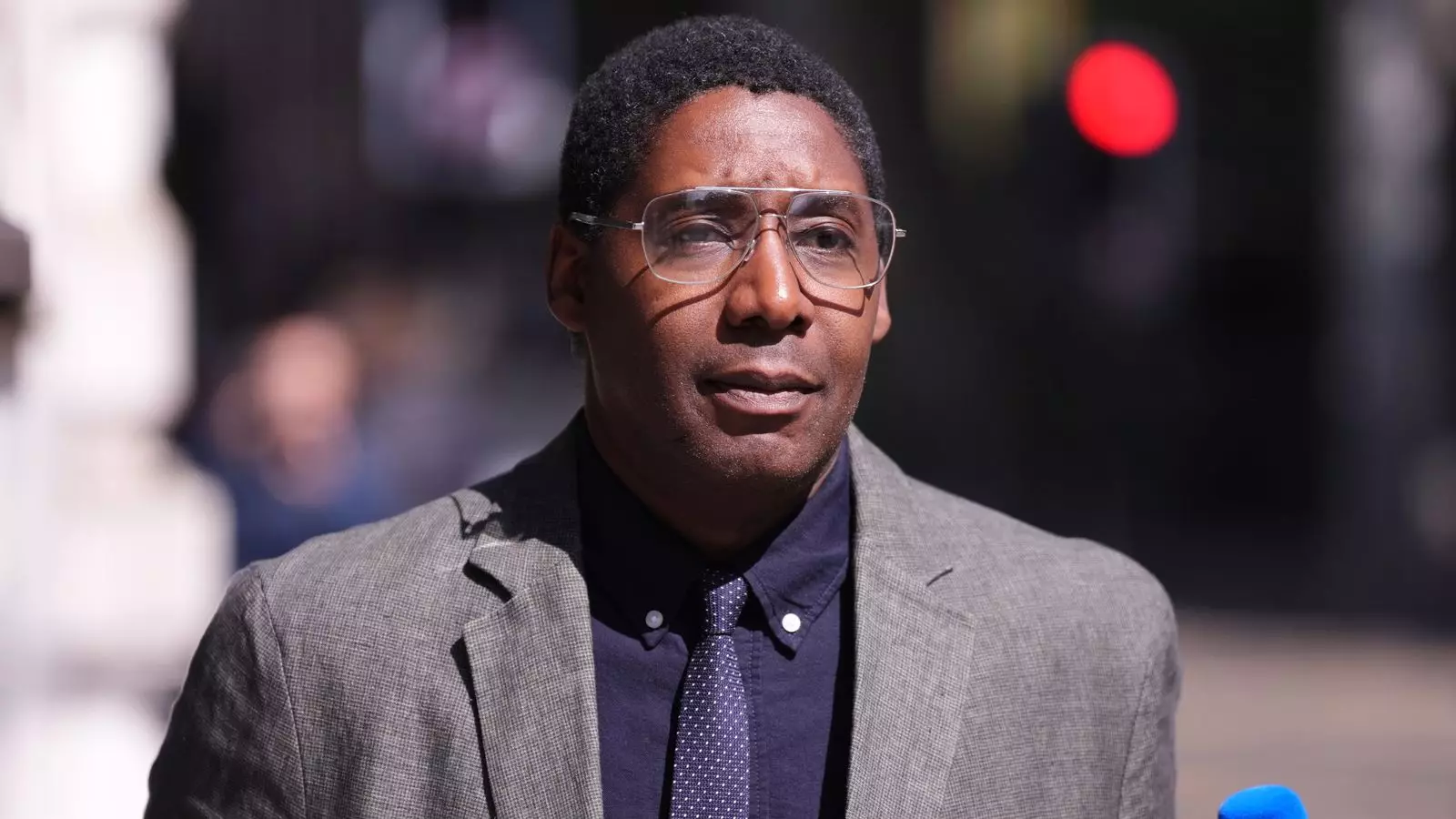In an unsettling revelation that ripples through the art community, a well-known figure in the UK art scene, Oghenochuko Ojiri, has been sentenced to two and a half years in prison for a disgraceful failure to report his transactions with a known financier of terrorism. It’s a powerful reminder that the world of art is susceptible to darker forces lurking beneath the glamorous facade. Ojiri’s dealings with Nazem Ahmad, a Lebanese businessman accused of funding Hezbollah, expose not only personal moral failure but also a concerning trend in the art market where integrity and vigilance are often sacrificed at the altar of financial gain.
This case punctuates a distressing truth: art is not merely a product of beauty or intellect; it can also become a conduit for nefarious activities. When Ojiri sold over £140,000 worth of art to Ahmad, he wasn’t just exchanging commodities; he was, knowingly or unknowingly, complicit in a wider web of exploitation and deceit that sidelines ethical considerations in favor of profit. We must grapple with the implications of such contacts in a world where the art market is ripe for manipulation.
The Shocking Consequences
What’s most disconcerting about this case is not just the fact that a figure of prominence has fallen from grace; it’s the systemic issues that go unaddressed until a scandal erupts. The judge’s remarks about Ojiri’s awareness of the risks involved in such dealings shed light on a larger dilemma: how many others in the art world prioritize financial success over ethical obligations? The obscuring of moral boundaries raises urgent questions about the responsibility of art dealers and gallery owners in safeguarding not only their reputations but also their impact on society.
Prosecutor Lyndon Harris’s assertion that Ojiri “elected to balance the financial profit and commercial success of your business against Ahmad’s dark side” hits the nail on the head. This statement practically encapsulates the moral vacuity that can prevail in competitive sectors, where ambition often blinds individuals to the ethical implications of their choices. The overt willingness to compromise one’s integrity reinforces a culture that prioritizes immediate gains over long-term accountability, a phenomenon we must confront unequivocally.
The Broader Art Market Implications
The fallout from Ojiri’s actions should act as a clarion call for the art community, spanning from galleries to auction houses. If we fail to address the vulnerabilities within this market, we risk allowing it to become a playground for financiers whose motives are steeped in darkness. The fact that artwork valued at almost £1 million was seized—pieces by giants like Picasso and Warhol—emphasizes the dire need for stringent oversight in art transactions. Art isn’t merely an investment; it’s a cultural artifact, and its misappropriation can have devastating consequences for both the artists and the communities they represent.
Commander Dominic Murphy of the Metropolitan Police’s counter-terrorism command highlighted that Ojiri’s prosecution could serve as a guide for future industry conduct. The notion that this is the “first of its kind” suggests a gaping hole in the regulatory framework governing art sales. The art market, traditionally celebrated for its elite exclusivity and creative expression, is now starkly exposed for the potential it harbors for exploitation and complicity with unsavory characters. This should rally all of us—dealers, collectors, and citizens—to advocate for accountability and transparency within this realm.
Faith, Hope, and a Path Forward
In the wake of this scandal, it seems clear that we are at a pivotal juncture. The art world is ripe for reform, and what this episode lays bare is a demand for a vigorous reassessment of ethical standards governing art transactions. We should not merely condemn Ojiri for his misdeeds; we should seize this moment to redefine our collective values as a community.
Cultural players—artists, curators, and buyers—carry the weight of responsibility to foster an ethical marketplace that champions integrity over obscurity. It is not enough to simply avoid wrongdoing; we must actively pursue proactive measures that align our artistic endeavors with the values we profess. If we fail to do so, the repercussions will extend far beyond an individual, marking a cultural retreat from our shared humanity. In standing against the dark undercurrents of this scandal, let us pave a brighter path forward—one where art is celebrated not just for its beauty, but for the ethical values it embodies.


Leave a Reply